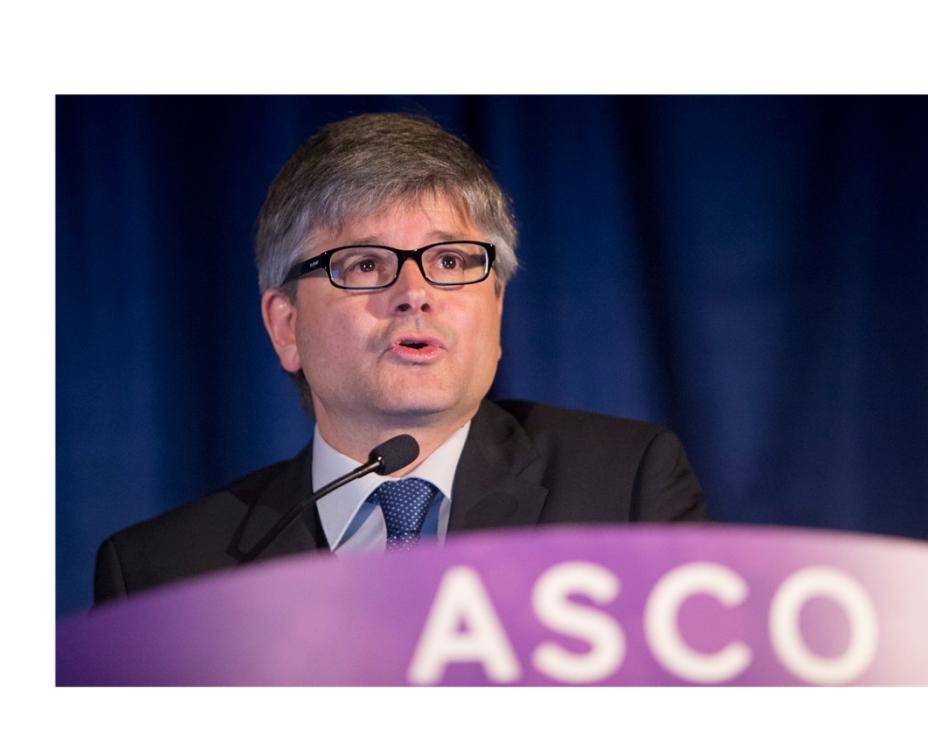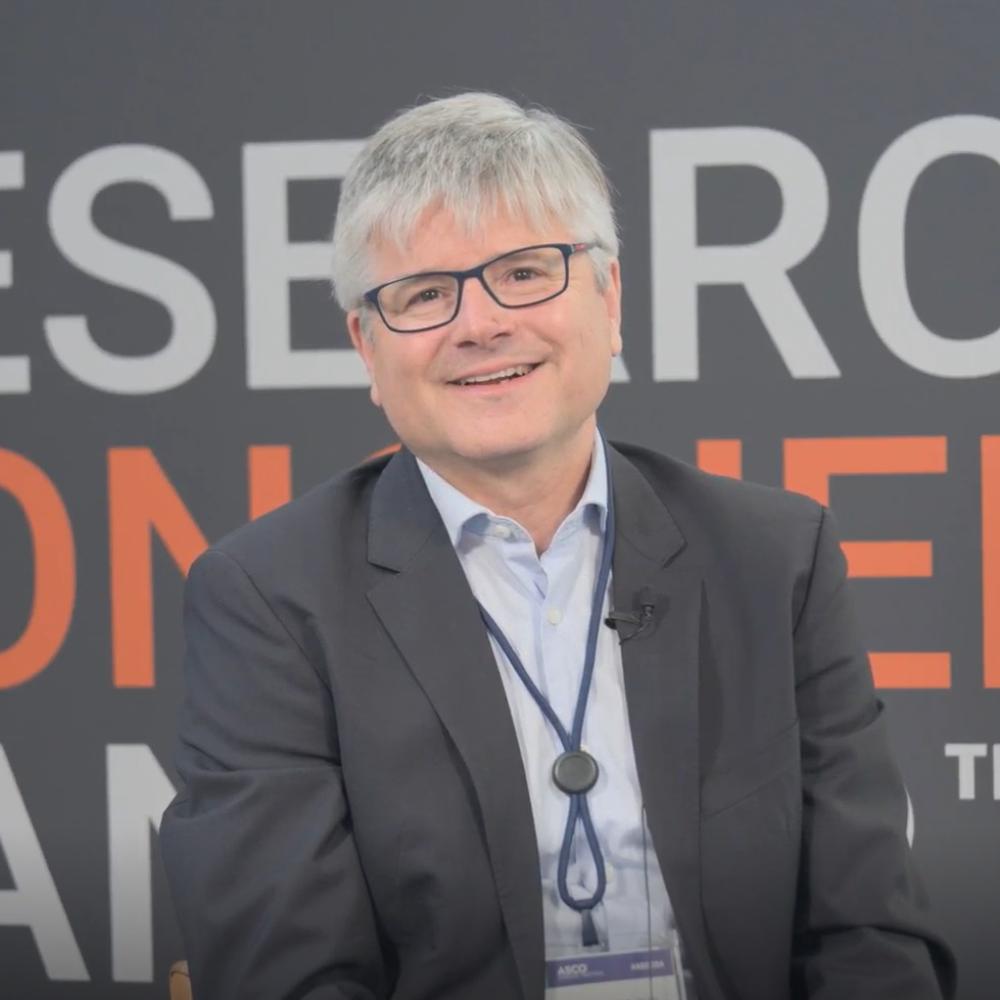These researchers have dedicated their careers to finding new treatments and cures for people with cancer.

When did you receive your Conquer Cancer grants, and what has the impact been on your career and the care you’re able to offer pediatric patients?
JM: I got the Young Investigator Award in 2000 and the Career Development Award (CDA) in 2001. Thanks to the CDA, I was able to set up my lab not only in the U.S., but also when I moved back to my hometown, Barcelona, after I finished my training in the U.S.
Conquer Cancer’s support enabled me to set up this research for long-term success. It also allowed me to launch a pediatric cancer center in Barcelona (PCCB at Hospital Sant Joan de Déu). The CDA was critical in my career, and I’m so grateful to Conquer Cancer.
What initially motivated you to pursue oncology and cancer research?
JM: I’m a pediatric oncologist, and I did my training at Memorial Sloan Kettering Cancer Center (MSKCC) in New York. During my fellowship there, I realized that, without research, there was no way we could really move the field forward. That’s why, after my medical training, I spent six years in the lab.
Only through research do we make progress in treatment and care for young patients with cancer, and that’s always been the case. In the years since, we’ve seen—little by little—percentages after percentages that kids live longer and live better because of research.
Can you talk about what specifically drew you to pediatric oncology?
JM: Pediatrics is the understanding of human development over early ages, from conception all the way through becoming biologically adult. So many things can happen in these 20-plus years of human development. Among them is cancer, and we know young people develop cancer because they are growing. These cancers have unique features that have not much in common with cancers of adults and people of advanced age.
Understanding how each of the organs of a young individual develops, we learn when things go wrong how these unique cancers occur. When we are done with our [infant, childhood, and adolescent] developmental ages, we do not get pediatric tumors because our organs are no longer growing and developing. So, it’s a story of biology and unique features for these cancers, mostly stemming from fetal development, which is very difficult to modulate and study. Some kids develop more than one cancer during development ages, and we have seen numerous cases where both such tumors developed independently during fetal growth.
Can you summarize the key takeaways that came from your Conquer Cancer–funded projects?
JM: My Conquer Cancer–funded research focused on neuroblastoma. We’ve been able to achieve several major developments in this field, including a molecular prognostic indicator for which patients with this rare disease have a good prognosis or poor prognosis. This helps us to standardize and tailor neuroblastoma care based on the biology of each individual patient.
In our cancer center, we’ve also been part of developing a new FDA-approved drug. This helped to improve outcomes for many patients with neuroblastoma and their families worldwide because we were able to lead this development worldwide. That we’ve been able to help approve a drug in pediatric cancer care through our research—that doesn’t happen often. And now, from China to Latin America, families and children have access to this promising treatment. I’ve seen children in Shanghai and in Buenos Aires receiving this new treatment. This has been incredibly rewarding.
It can be challenging for early-career researchers to secure funding for cancer research. What impact has Conquer Cancer support had on your research career?
JM: It is so critically important when you’re an early-career researcher because funding is very hard to come by when you start your career. And this happens anywhere: in the U.S. and abroad. We’ve been able to really make major changes in pediatric oncology over the past three decades.
It is so important to support the best young investigators who have the drive and the hunger to move the field of cancer research forward. I would have never been able to move forward in my cancer research without that early support from Conquer Cancer.
What is the current state of pediatric oncology research today, and how can increased research funding in this area of cancer research help to improve outcomes for young patients?
JM: Through the years, oncology researchers have tried to reproduce in pediatrics what we’ve learned from the massive amount of data generated from adult cancers. But in pediatric cancers, we couldn’t find these pathways or mutations until we realized this is not the way we should be studying pediatric cancers.
So, we had to develop everything from scratch, learning from the origins of the cells, learning from fetal stem cell biology, learning from fetal development, and getting unique insights and understandings of these particular tumors, and which explain why, in many ways, only children and adolescents can develop such rare tumors.
Pediatric cancers are rare, so like any rare disease, the support comes mostly from society: families, associations, fundraisers have been the ones to push our field forward and support our developments. We are very grateful for anyone who can help to support these rare tumor studies, and we have shown that when we follow our own research paths, we learn so much, and we make real advances. And now, 20 years after I received my two research grants from Conquer Cancer, we can certainly show and prove that our kids live longer and live better. And the impact is worldwide.
What does conquering cancer look like to you?
JM: In adult oncology, generally the aim is to prolong the survival of the patient. But in pediatric oncology, we really aim to eradicate cancer. Indeed, we can cure most of our children with cancer in high-income countries. Many children who are treated for their cancers are truly cured. And now we care about how the life they have ahead of them might be less affected by cancer treatments. We not only care about curing them, but [also] about minimizing the impact of treatments on their lives and well-being.
What sets Conquer Cancer apart from other cancer organizations?
JM: Conquer Cancer provides researchers with such a broad umbrella of expertise and support. You can be an expert in a niche area of cancer care, but Conquer Cancer gives you grant funding and networking support to connect with anyone who can help your research in so many different ways. My career was truly developed thanks to support from Conquer Cancer. All I’ve been able to do in cancer research stems from that critical and timely support.
